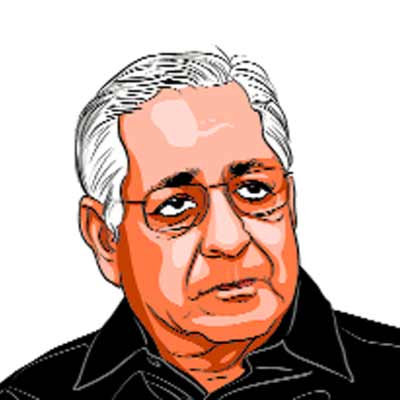Opinion Sedition: Repeal or Substitution?
It ruled that the section was applicable only to activities involving incitement to violence
Sedition: Repeal or Substitution?
Gandhiji described sedition as the Prince of the Indian Penal Code. Curiously in the draft constitution,sedition was included as a head of restriction on freedom of expression. During the debates,K M Munshi moved an amendment for its deletion which was accepted. However Section 124A which deals with and punishes sedition remained on the statute book. In the heyday of British colonialism,sedition was construed by the Privy Council to include any statement that was liable to cause disaffection,namely,exciting in others certain inimical feelings towards the government,even though there was no element of incitement to violence or rebellion.
Our Supreme Court in its judgment in Kedar Nath in 1962 dissented from the view of the Privy Council. It ruled that the section was applicable only to activities involving incitement to violence. After the law laid down by the Supreme Court,it is not sedition to criticise government however bitterly or forcefully.
Binayak Sens conviction for sedition and the charge of sedition slapped on Arundhati Roy for her alleged statements on Kashmir has led to a demand for repeal of Section 124A. It is argued that despite the Supreme Court judgment in Kedar Nath,law enforcement and even judicial authorities owing to lack of understanding or otherwise continue to apply the section to activities not within its ambit. In view of the present atmosphere of insurgency and terrorist violence,repeal may not be feasible. The better course would be to substitute the present section 124A with another provision which defines sedition precisely in keeping with the Supreme Courts interpretation and brings within its ambit only those activities which incite violence or advocate forcible overthrow of government.
Beneficial PILs
Public Interest Litigations (PILs) when they do not degenerate into Private,Political or Publicity litigations have proved beneficial. The recent judgment of a Bench of the Supreme Court comprising Justices Dalveer Bhandari and AK Patnaik is a fine illustration. The PIL was filed by an organisation,Bachpan Bachao Andolan,which brought to the Courts notice serious violations and abuse of children who are forcefully detained in circuses and in many instances deprived of the basic human needs of food and water. The Supreme Court promptly responded and comprehensively dealt with the issues raised in the PIL. Justice Dalveer Bhandari speaking for the Court rightly emphasised that Indias children are Indias future…It is necessary that for a healthy future,we must protect,educate and develop the child population. To that end,the Court issued several directions to various authorities constituted under different laws to ensure the welfare of children. It is heartening that the Bench has taken human suffering seriously and dealt with the issues thoroughly in a pragmatic manner without fulminatory outbursts of indignation to catch media attention. The Solicitor General Gopal Subramaniam must be complimented for adopting a non-adversarial stand.
Think twice before speaking
It is common for persons in public life to disown their statements by specious clarifications. Sometimes there is a complete U-turn as in the case of the Pakistan captain Shahid Afridi who had in his previous statement unambiguously complained that Indians did not have generous hearts but subsequently was full of praise for the Indians generosity. Recently,we have witnessed this syndrome in the case of Digvijay Singh who in one of his statements said that the state of Karnataka had excellent Lokayukta legislation but the Lokayukta,Justice Santosh Hegde,was unable to control corruption and was protecting the Chief Minister of Karnataka. This base insinuation betrayed total ignorance of the functioning of the Lokayukta and the adverse orders passed against the State. Indeed,the Opposition in Karnataka in its tirade against the Chief Minister,quotes and relies upon Justice Hegdes orders. It would have been graceful for Digvijay Singh to withdraw his aspersion instead of labouring attempt to explain the purport of his previous statement. Apparently something overtakes our politicians in front of a microphone. Then the urge to make headlines is uncontrollable. However,they should at least try to think twice before blurting out.


